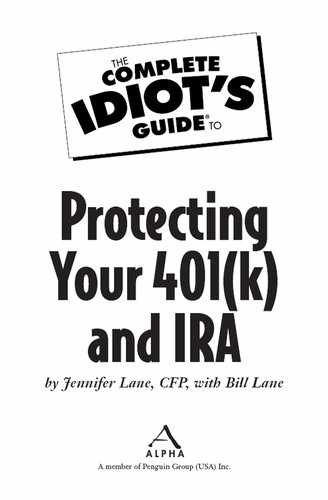What Spouses and Nonspouses Need to Know
A spouse who is inheriting IRAs has the advantage of being able to transfer retirement accounts she’s inherited without owing estate taxes or any more income tax than her late spouse would have owed on the account. This doesn’t mean that she should take advantage of this rule without careful planning. Disclaiming the inheritance so that the accounts can pass to contingent beneficiaries like the children could be a better option in the long term.
A nonspouse beneficiary needs to carefully consider her own financial plan and the tax ramifications of bringing her inheritance into her own retirement nest egg.
Whether you have a carefully thought-out estate and retirement plan or this is your first look at the finances, consider these important points when you inherit a retirement account. The approach you take differs whether you’re the widowed spouse, one of the kids, a relative, or a friend.
Rules for Spouses
If you’ve recently lost your spouse, sitting down to do a full financial plan, much less thinking about long-term life and financial goals, may seem overwhelming. Fortunately, the review of your plan doesn’t need to be as detailed and involved as future reviews will be when you’re ready to tackle them. Follow these short-term steps to decide whether it would be better to transfer the accounts to your name or disclaim and let the assets go to the contingent beneficiaries.
• Do you need the money? This may seem like a simple question, but many widows and widowers ignore it. Don’t be too quick to pass inheritances to the next generation if you need the money for your own retirement security. If you’re still working or you’re many years from retirement, run one of the retirement calculators on www.CalcXML.com or www.AARP.com to get an idea of whether you’re on track for retirement or still have a good deal of catching up to do. Keep the retirement inheritance if it looks like you don’t have enough set aside for your own secure retirement or that you might just barely make it. If you’re lucky enough to have much more than you think you’ll need, plan a meeting with your financial planner to double-check your numbers, and then consider disclaiming your inheritance.
If you’re retired, check your monthly expenses and income sources. Gather your credit card statements, bank statements, and check-books, and make an estimate of what is coming in and what has been going out. If you want to be more detailed, an account aggregator like www.Mint.com can help you with this by categorizing your expenses into an easy-to-read pie chart. If your nest egg is smaller than 25 times the annual income you need from investments, keep your inheritance and transfer the accounts to your name.
• Do you expect to receive other inheritances? Families need to talk about money, but few do. If you think you might also inherit money from another source, like your own parents or in-laws, do some planning with them before deciding whether to take or disclaim the inheritance from your spouse. You may never have considered ever talking so openly with family about money, but it would be a shame to act on an assumption of a sizable inheritance that turns out to be false and have it cost the family money or estate taxes.
Once the IRA is updated to show you as the inherited owner of the IRA, you can name your own beneficiaries. This is the time to complete a fully updated financial plan, with the help of a financial planner if necessary, to decide what your asset allocation should be and, if you’re retired, what your withdrawals should be, and to update your estate plan. When you’ve done that, you may decide to name primary beneficiaries of your kids, other important people, a charity, or a trust.

Nest Eggs
If you’re inheriting a Roth IRA and you’re under age 59 ½, you’re eligible to take money from the Roth tax-free as long as the account has met the five-year rule.
Tips for the Kids
If you’re not the spouse, the options of what you can do with your retirement plan inheritance will all involve some tax planning. You may have the option of taking small distributions over your lifetime, or you may have to take the balance out of the account within five years. Since you’ll owe income tax on the money you withdraw from the IRA (not including any basis in the IRA as mentioned previously), it’s best to try to limit the amount you take out of the account. Keeping the IRA intact will save taxes and can help grow a nest egg for your own retirement. Most trustees will give you the option of taking RMD over your lifetime starting in the year after the year the original owner died, or to take a full distribution within five years. The lifetime option is usually the best choice because it keeps the money in the IRA longer. Avoid taking any more money than you have to in order to preserve as much of the tax benefits of the account as you can.
If you’re inheriting the retirement account alone or with others—particularly if the beneficiaries vary in age by more than a few years—you need to ask the trustee to open an inherited IRA for each individual by December 31 of the year after the original account owner died. Be very careful how the new inherited IRA is titled. The original owner’s name stays on the account, but the name of the beneficiary is added. For example, the “John Smith, deceased, IRA, for the benefit of Daughter Smith, beneficiary.” The wording may be different depending on your trustee, but it should be clear that it is not Daughter’s IRA in this case, but an inherited IRA. The transfer into the inherited IRA should be a trustee-to-trustee transfer; the trustee can’t send you a check. If they do send a check made out to you in your name, then the IRS deems that as a distribution—you can’t put it back into the account, and you can’t put it in your own IRA. Some trustees will send a check made out to the inherited IRA. You can redeposit the check in the properly titled inherited IRA in that case, but the trustee-to-trustee transfer is preferred to avoid confusion.
Estate executors often delay distributing assets to the beneficiaries until they have the estate nearly settled and know they have enough money to cover any estate taxes or other obligations. Be ready for the executor to come back to you and your inherited IRA if they need to for taxes. Other than making the RMD, don’t withdraw the money too quickly; the executor may need some money to pay estate taxes.
The tax law offers a credit to beneficiaries who are forced to withdraw money from IRAs they’ve inherited to pay estate taxes. The law recognizes that the beneficiaries are, in a sense, being double-taxed—first when they pay income tax on the amount they withdraw from the IRA and again when they pay the estate tax. Dividing the IRA assets so each beneficiary has a separate account makes the bookkeeping on this credit easier. If estate taxes are due and the retirement accounts are the only assets available to pay them, then having separate accounts will make it easier for each beneficiary to apply the potential tax credit on his personal tax return.
..................Content has been hidden....................
You can't read the all page of ebook, please click here login for view all page.
